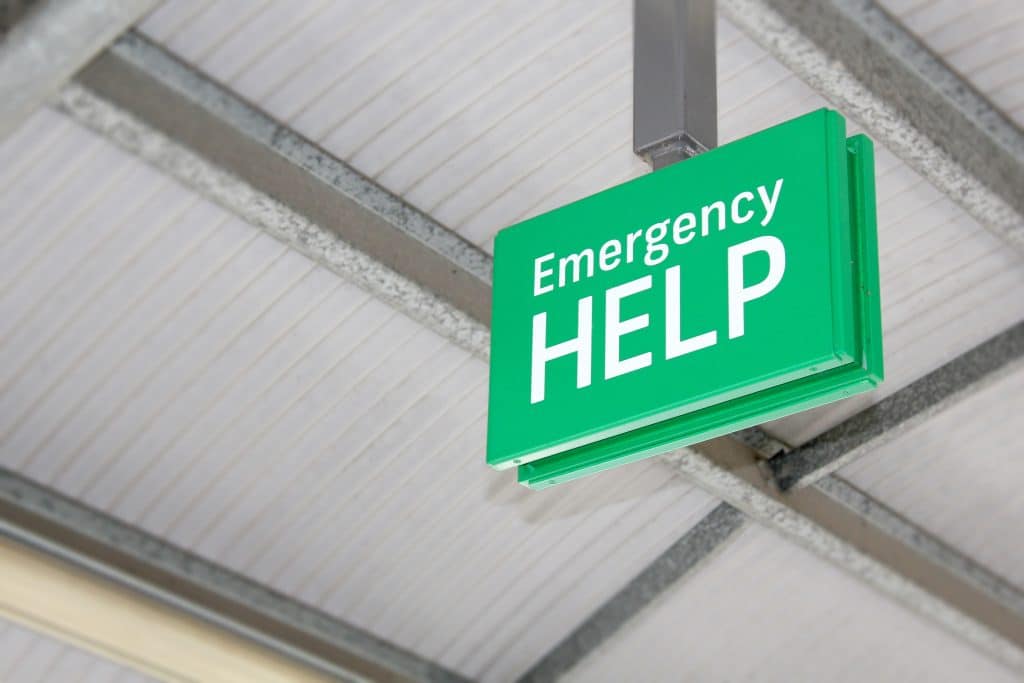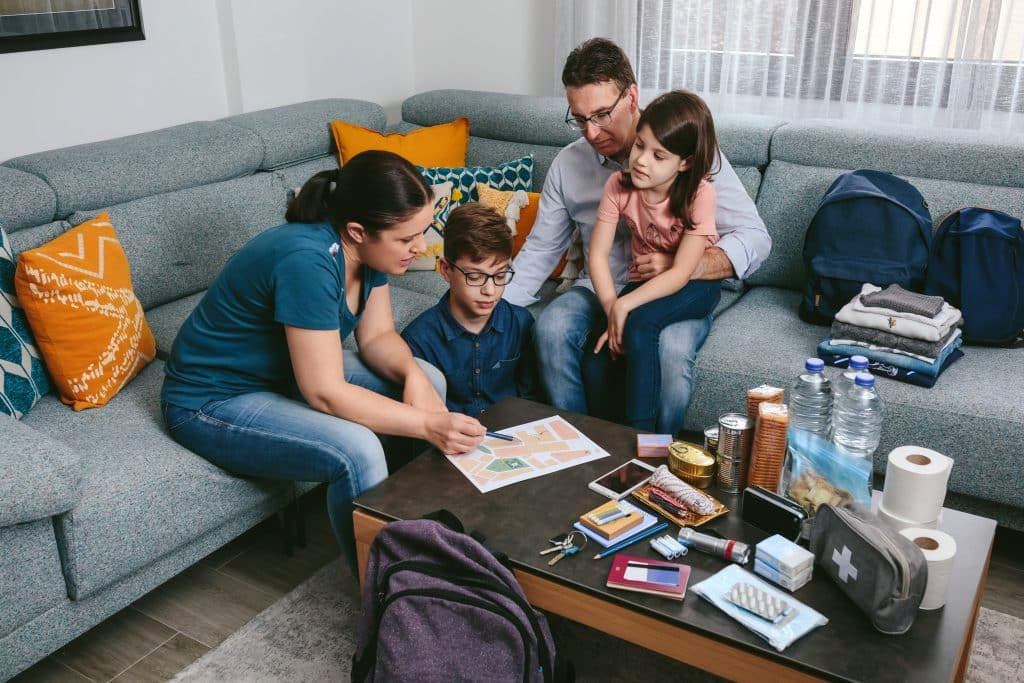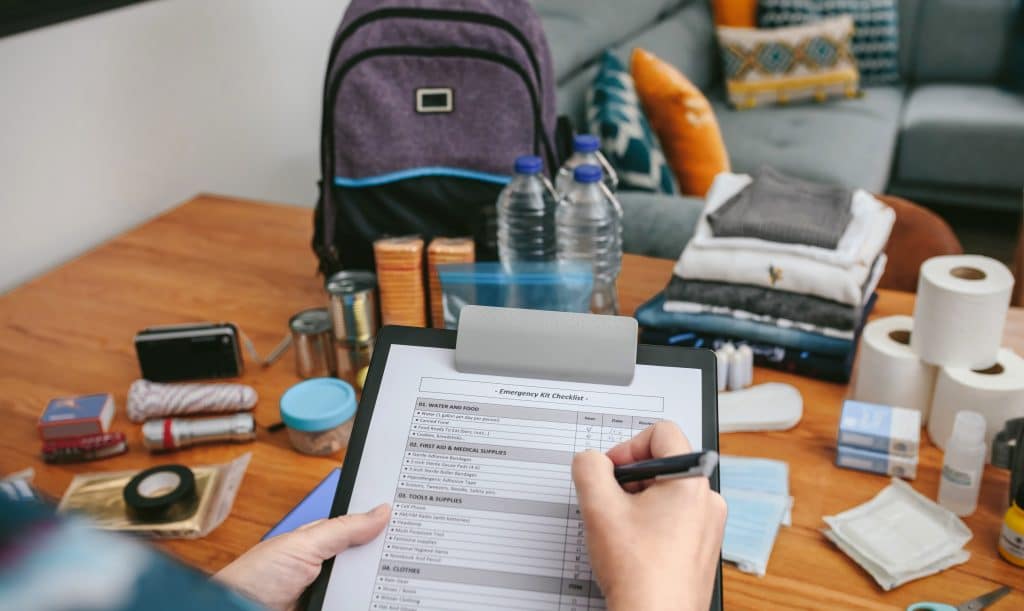An emergency can strike at any time, and being prepared for such events is crucial in ensuring the safety and well-being of your family. This essential guide to home emergency preparedness will provide you with the knowledge and tools necessary to create a comprehensive plan, gather necessary supplies, and navigate various emergency situations with confidence. By taking the time to prioritize emergency preparedness, you can minimize the impact of unexpected events and gain peace of mind.
Contents
- 1 The Unexpected Nature Of An Emergency
- 2 Mastering Home Emergency Preparedness
- 3 Creating An Emergency Plan
- 4 Building An Emergency Kit
- 5 Preparing For Different Types Of Emergencies
- 6 Communication And Staying Informed
- 7 Evacuation And Sheltering In Place
- 8 First Aid And Basic Emergency Skills
- 9 Maintaining And Updating Preparedness Measures
- 10 Dedicate Time And Energy To Home Emergency Preparedness!
The Unexpected Nature Of An Emergency

Emergencies are unpredictable by nature, which can make them all the more frightening. No one can anticipate when an emergency will strike or how it will unfold, and the uncertainty can leave individuals feeling vulnerable and anxious. Whether it’s a sudden medical emergency or a natural disaster, the unexpectedness of these events can be overwhelming. Even with the best preparation and planning, emergencies always have the potential to catch you off guard.
However, it is essential to remember that being prepared for any situation can help alleviate some of the stress and anxiety that comes with the unexpected nature of emergencies. Remembering to stay calm, focused, and adaptable is critical in navigating any emergency situation.
Mastering Home Emergency Preparedness
Home emergency preparedness is essential for ensuring the safety and well-being of your family during unexpected events. By following the following guide, you’ll learn the critical steps and supplies required to become fully prepared for various emergencies. With the right information and resources, you can create a reliable emergency plan that will keep your family safe in the face of adversity.
Creating An Emergency Plan

Having a well-thought-out emergency plan is a crucial aspect of home emergency preparedness. Start by identifying potential emergencies that may affect your area, such as natural disasters, fires, or power outages. Then, discuss with your family the steps to take in each scenario, including evacuation routes, meeting points, and emergency contacts. Ensure everyone in your household is familiar with the plan and knows where to find it in case of an emergency.
Regularly review and update your emergency plan as your family’s needs change or as you gain new information about potential risks. It’s also essential to practice your plan at least once a year to ensure that everyone is comfortable with the procedures and can execute them calmly during a crisis.
Building An Emergency Kit

An emergency kit is an essential component of home emergency preparedness. Begin by gathering basic supplies, such as water, non-perishable food, a first-aid kit, flashlights, batteries, a battery-operated or hand-crank radio, and any necessary medications. It’s also helpful to include important documents, such as copies of identification, insurance policies, and medical records, in a waterproof and fireproof container.
Customize your emergency kit to meet your family’s unique needs, considering factors such as pets, children, and any specific medical requirements. Regularly check and replace expired items to ensure your kit remains up-to-date and functional when needed.
Preparing For Different Types Of Emergencies

Different emergencies require unique preparedness measures. For natural disasters like hurricanes, tornadoes, or earthquakes, take steps to secure your home by reinforcing windows, doors, and roofs and securing heavy items that could fall during an event. In the case of fires, install smoke detectors on every level of your home, and establish a fire escape plan for each room. For power outages, ensure that you have alternative sources of light, such as flashlights or lanterns, and a supply of non-perishable food that doesn’t require refrigeration or cooking.
Stay informed about the risks specific to your region, and seek advice from local authorities or experts on the best ways to prepare for these events. By tailoring your preparedness efforts to the most likely scenarios, you can maximize your family’s safety during an emergency.
Communication And Staying Informed

Establishing a communication plan is a vital aspect of home emergency preparedness. Ensure that all family members have a list of emergency contacts, including local authorities, medical facilities, and out-of-town relatives or friends who can serve as a central point of contact. Teach children how to use a landline phone and memorize essential phone numbers. It’s also helpful to have a charged power bank or a solar charger to keep mobile devices operational during extended power outages.
Staying informed during an emergency is crucial for making timely and accurate decisions. Keep a battery-operated or hand-crank radio on hand to receive emergency alerts and updates from local authorities. Additionally, familiarize yourself with warning systems in your area, such as sirens, text alerts, or apps, and ensure all family members know how to interpret these signals and respond accordingly.
Evacuation And Sheltering In Place

Depending on the nature of the emergency, you may need to evacuate your home or shelter in place. When evacuation is necessary, know your community’s designated evacuation routes and have a predetermined meeting location for your family. Keep your car’s gas tank at least half full at all times and store essential items, such as water, non-perishable food, and a change of clothes, in a portable emergency kit.
In situations where sheltering in place is the safest option, designate a secure room or area within your home that provides protection from external threats. You should stock this area with essential supplies, such as water, food, and first-aid items. Make sure all family members are familiar with the location and procedures for sheltering in place, and practice these procedures as part of your regular emergency plan review.
First Aid And Basic Emergency Skills

Knowing first aid and basic emergency skills is invaluable during a crisis. Take a certified first-aid course to learn essential skills such as CPR, treating wounds, and stabilizing fractures. Encourage all capable family members to participate in these courses as well, as it’s crucial for everyone to be able to provide basic medical assistance during an emergency.
Other valuable skills include knowing how to shut off utilities like gas, water, and electricity, as well as basic fire safety procedures like using a fire extinguisher or safely evacuating a smoke-filled room. Investing in these essential skills can help ensure your family’s safety during a wide range of emergencies.
Maintaining And Updating Preparedness Measures

Home emergency preparedness is an ongoing process that requires regular review and updates. Set a schedule to inspect and replenish your emergency kits, update your emergency plans, and practice your evacuation and sheltering procedures. Engage your family in these efforts to ensure everyone remains knowledgeable and confident in their ability to respond to an emergency.
Additionally, stay informed about new developments in emergency preparedness by attending community events, workshops, or online webinars. These resources can provide valuable information on emerging threats, technological advancements, and best practices for ensuring your family’s safety and resilience in the face of unexpected events.
Dedicate Time And Energy To Home Emergency Preparedness!
By following this essential guide to home emergency preparedness, you can create a comprehensive and reliable plan that will keep your family safe during a wide range of emergency situations. Remember, preparedness is an ongoing process that requires regular attention, updates, and practice. By dedicating time and resources to this critical aspect of home safety, you can minimize the impact of unexpected events and gain peace of mind knowing that your loved ones are protected.



